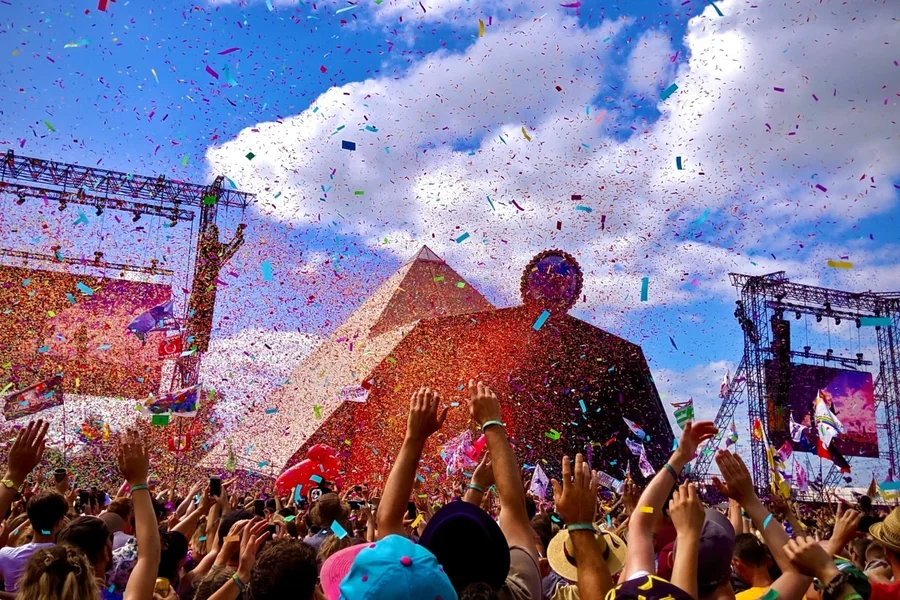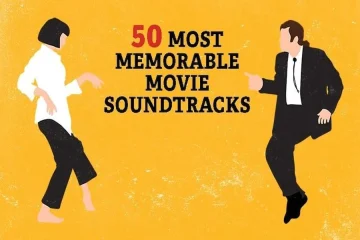There’s something magical about summer that makes it the perfect season for music festivals. The long, sun-drenched days, the energy of live performances, and the sense of camaraderie among festival-goers all come together to create an unforgettable experience. Music festivals have evolved from niche events for music enthusiasts to large-scale cultural celebrations, attracting people from all walks of life. These festivals are more than just concerts; they are immersive experiences that offer a combination of music, art, culture, and unforgettable memories.
Whether it’s the anticipation leading up to the event, the joy of discovering new artists, or the feeling of unity with a crowd of like-minded individuals, music festivals embody the spirit of summer. In this article, we’ll explore why music festivals have become the ultimate summer experience, highlighting the music, the atmosphere, the social connections, and the sense of freedom they offer.
1. The Thrill of Live Music and Discovering New Artists
At the heart of any music festival is the music itself. There’s an undeniable thrill that comes from experiencing live performances, whether it’s your favorite band headlining or a lesser-known artist performing on a smaller stage. The energy and excitement of seeing artists perform in front of thousands of people creates a unique atmosphere that simply can’t be replicated by listening to music through headphones or speakers.
A Diverse Lineup for Every Taste
Music festivals bring together a diverse range of artists and genres, offering something for everyone. Whether you’re into rock, electronic, hip-hop, country, or indie music, you’ll find a stage showcasing the best talent from around the world. Major festivals like Coachella, Glastonbury, and Tomorrowland have consistently curated lineups that feature a mix of established superstars and up-and-coming talent, providing a platform for artists to reach new audiences.
For many festival-goers, one of the most exciting aspects of attending a music festival is the opportunity to discover new artists and genres. Hearing an unknown band or DJ perform live can lead to a new musical obsession. The joy of stumbling upon a performance that resonates with you, even if you had never heard of the artist before, is one of the defining characteristics of the music festival experience.
The Unmatched Atmosphere of Live Performances
There is something undeniably magical about hearing live music in an open-air setting, surrounded by a sea of people who are all there for the same reason: to enjoy the music. The crowd’s energy amplifies the experience, creating a sense of unity and excitement that’s hard to replicate in any other setting. From the anticipation before the first note is played to the collective euphoria of everyone singing along, live performances at music festivals create a bond between the artist and the audience that is unlike anything else.
2. The Sense of Freedom and Escape
Summer is synonymous with freedom, and there’s no better place to experience that sense of liberation than at a music festival. For a few days, attendees can escape the pressures of daily life, immerse themselves in the present moment, and embrace the carefree spirit of the season. Music festivals offer an environment where people can let go of their worries and connect with others in a way that is both joyful and freeing.
Leaving Your Everyday Life Behind
For many festival-goers, attending a music festival is a break from their routine—a chance to disconnect from work, school, and the usual demands of daily life. The festival environment fosters a sense of liberation, where time seems to slow down, and the outside world fades away. It’s a space where people can embrace their individuality, dress how they like, and express themselves without judgment. The freedom to be yourself in a non-judgmental environment is one of the key factors that make music festivals so appealing.
The Allure of Adventure and Spontaneity
Part of the charm of music festivals is the sense of adventure and spontaneity that they offer. For many festival-goers, the journey to the festival is just as exciting as the event itself. Whether it’s camping in the festival grounds, road-tripping with friends, or meeting new people along the way, the whole experience becomes an adventure. There is also an element of surprise at these events—whether it’s stumbling upon a hidden stage or having an impromptu dance party with strangers, every moment is unpredictable and full of potential.
3. A Community Experience: Connecting with Like-Minded People
Music festivals are not only about the music but also about the community that forms around it. These events bring together people from all over the world, united by a shared love of music. The sense of belonging that comes from being part of a large, passionate crowd creates an environment that fosters friendship, connection, and camaraderie.
A Global Gathering of Music Lovers
One of the most incredible aspects of music festivals is their ability to bring people from diverse backgrounds together. Attendees at festivals often come from different countries, cultures, and walks of life, yet they are all united by a common passion for music. This international appeal creates a sense of global unity that is especially palpable at large-scale festivals like Coachella and Glastonbury. It’s not uncommon to meet people from different parts of the world, exchange stories, and bond over shared musical tastes. For many, this global community aspect is one of the highlights of attending a music festival.
Shared Experiences and Lasting Memories
The friendships made at music festivals often become lifelong connections. Whether you’re dancing alongside someone at your favorite artist’s performance or bonding over the excitement of a surprise appearance, these shared experiences create lasting memories that extend well beyond the festival itself. In fact, many festival-goers return year after year, creating traditions with friends and even meeting new people along the way. These festivals become places where memories are made, and personal connections are formed in the most organic and joyful ways.
4. The Unique Atmosphere: Art, Fashion, and Creativity
A music festival is a feast for the senses—not just for the music, but also for the art, fashion, and creativity on display. Festivals are spaces where individuals can showcase their personal style, experiment with fashion, and express their creativity. Many festivals have evolved into full-fledged cultural events, where art installations, themed performances, and vibrant fashion become integral parts of the experience.
Fashion as Self-Expression
Music festivals have become known for their unique sense of style, where attendees often dress in eclectic, vibrant, and artistic ways. Festivals like Coachella and Burning Man have become iconic for their fashion, with attendees showcasing bold outfits, costumes, and accessories. The festival environment allows people to experiment with their style, embracing creative expression through clothing, makeup, and accessories. For many, dressing up for a music festival is just as exciting as the music itself, allowing them to connect with others who share their love of self-expression.
Art Installations and Immersive Experiences
Many music festivals now feature large-scale art installations and interactive experiences that add an additional layer to the event. Whether it’s a massive sculpture, a light show, or a fully immersive visual performance, these installations contribute to the festival’s atmosphere, transforming the festival grounds into an artistic playground. For attendees, these visual experiences complement the music, creating a multi-sensory journey that enhances the overall festival experience.
5. A Celebration of Diversity and Inclusivity
Modern music festivals are more inclusive than ever, with a strong emphasis on diversity and representation. These events attract a wide range of people from different walks of life, celebrating various cultures, sexual orientations, and identities. Music festivals today actively promote inclusivity, ensuring that all attendees feel welcomed and valued, regardless of their background.
Creating Safe and Welcoming Spaces
With their focus on community, many festivals have taken steps to create safe spaces for underrepresented groups, including women, LGBTQ+ individuals, and people of color. This inclusivity is not just about representation but also about creating environments where everyone feels safe and respected. The overall vibe of music festivals, often centered around peace, love, and unity, contributes to a culture of acceptance that is vital in today’s world.
Promoting Social Movements and Causes
In addition to promoting inclusivity within the festival grounds, many music festivals have used their platform to highlight important social causes. From environmental sustainability to racial justice, festivals like Coachella, Lollapalooza, and Glastonbury often incorporate activism into their programming. Artists and attendees alike use these events as an opportunity to raise awareness about social issues and support charitable causes. This aspect of music festivals has helped solidify their status as not just entertainment events but also platforms for positive social change.
Conclusion: Why Music Festivals Are a Must-Experience
Music festivals are more than just events—they are transformative experiences that allow people to connect with music, art, and each other in a way that is unlike anything else. From the thrill of live performances to the sense of freedom, creativity, and community, music festivals embody the spirit of summer. They are a place where memories are made, new connections are formed, and people can express themselves freely.
Whether you’re a music lover, a fashion enthusiast, or someone seeking a unique adventure, attending a music festival offers an unforgettable experience that will leave you with a sense of joy, unity, and nostalgia. The ultimate summer experience, a music festival is where you can embrace the power of music and immerse yourself in a world of creativity and celebration.



